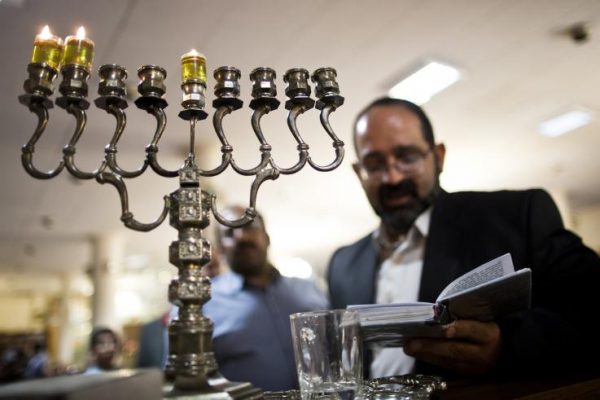News trend
HANUKKAH 2018 WHAT IS HANUKKAH? WHEN DOES IT START AND END?
HANUKKAH 2018 WHAT IS HANUKKAH? WHEN DOES IT START AND END?
It’s time to take out the menorah and heat up the latke pan because Hanukkah has once again arrived.
Celebrated each year in accordance with the Jewish calendar, Hanukkah begins on the 25th day of the third month, known as Kislev, and lasts for eight days. Because the Jewish calendar follows a lunar cycle and the Gregorian calendar follows a solar cycle, the date on commonly used calendars changes each year.
In 2018, Hanukkah will begin on the evening of Sunday, December 2, and end on the evening of Monday, December 10. Hanukkah is aptly referred to as the “festival of lights,” a nickname intended to remind people of the miracle that occurred.
Around 200 B.C., Judea, known today as Israel, was under the rule of Antiochus IV Epiphanes, who outlawed the Jewish religion and ordered Jews to worship Greek gods. In 168 B.C., according to the History channel, his soldiers went into Jerusalem and destroyed the Second Temple. Judah Maccabee led a revolt and drove the Syrians out of Jerusalem. He then called for the temple to be rebuilt and the menorah to be lit.

However, there was a wrench in his plan to light the menorah—after the revolt, there was only enough untainted oil to keep the menorah lit for one day. They lit the menorah anyway but instead of burning out, the oil kept the menorah flickering for eight days, in what the Jewish people saw as a miracle.
Each year, observers of the Jewish faith light their menorahs for eight nights, traditionally in a space where people can see it burning, such as a window, to remind themselves and others of God’s miracle.
Candles are placed in the menorah right to left but are lit from left to right, the same direction as Hebrew is read. The candle in the middle is called a shamash and is lit first, then used to light every other candle. On the first night, only one candle aside from the shamash is lit and an additional candle is lit on each subsequent night, ultimately reaching a total of nine.
Each night, a blessing is said either before or as the candles are lit, which said, “Blessed are You, Lord our Go d, King of the universe, who has sanctified us with His commandments, and commanded us to kindle the Chanukah light.”
On the first night, a second blessing is recited, which translated to, “Blessed are You, Lord our God, King of the universe, who has granted us life, sustained us, and enabled us to reach this occasion.”
While family traditions vary, most people observing Hanukkah feast on potato pancakes called latkes. Frying the latkes in oil is reminiscent of the oil that miraculously burned for eight days. Some like to dip their latkes in either sour cream or applesauce.
For festivities involving children, it’s customary for family and friends to gather around and play a game of dreidel. Each player is given equal game pieces, which are often pieces of chocolate gelt or coins but can be any small item. At the beginning of each round, players put one piece into the “pot.” Then, players take turns spinning the dreidel and following the instructions of each of the four sides:
Nun: Player does nothing
Gimel: Player takes everything in the pot
Hey: Player takes half the pot
Shin: Player adds a game piece to the pot
Many families also exchange gifts during Hanukkah. Some families exchange gifts on one night while others opt to give gifts every night.

